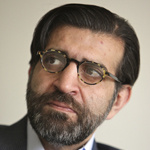The Regional Influence That We Squandered

On Monday, January 25, 2011, Iranian Diplomacy held a conference on the diplomatic developments of its eastern neighbors, i.e. Afghanistan and Pakistan. Following are the editer version of comments made by Sadegh Kharrazi:
At the core of the dire situation in Afghanistan lie the tense relations between Iran and the United States. As long as this statement holds true, radicalism will not be eradicated the way the international community wishes it to be, but will continue to reinforce its position and expand its sphere of influence.
The US is the most powerful country of the world, with the largest military budget and the world’s largest economy. However, the diplomatic mistakes and missteps of this country are on the same magnitude. The US is obsessed with hegemony, while it could use its power in a fairy constructive way. Unfortunately, the contradiction between theory and practice has paralyzed part of the US military –and its diplomatic apparatus- in Afghanistan for a decade. Al-Qaeda and the Taliban, US strategic foes, are the brainchildren of Pakistan’s intelligence service and their leaders are on the payrolls of the intelligence services of Saudi Arabia, Qatar and the UAE. That is, Pakistan, where lie the headquarters of Al-Qaeda, and the Persian Gulf Arab states, the lifelines of radical movements, are ironically US allies in the region. It seems what Washington is strategically oblivious to who is an enemy and who is a friend. The Arabs have been the main beneficiaries of Iran and US tensions. In fact, it would not be erroneous to say that the Arabs’ diplomatic identity and legitimacy hinges upon continued strife between Iran and the US, and they have been successful in maintaining this state by providing the Americans with manipulated data and analyses.
Infertile interactions between Iran and the US only serve the interests of Pakistan and Arab states of the region, and keep Iran’s eastern borders chaotic. Tehran and Washington have common interests in the eradication of radicalism and vanquishing al-Qaeda; however; except for a short period –in the immediate post 9/11 days- they have not tried to mend fences. As long as relations are cold, stability in Afghanistan remains a far-fetched dream.

